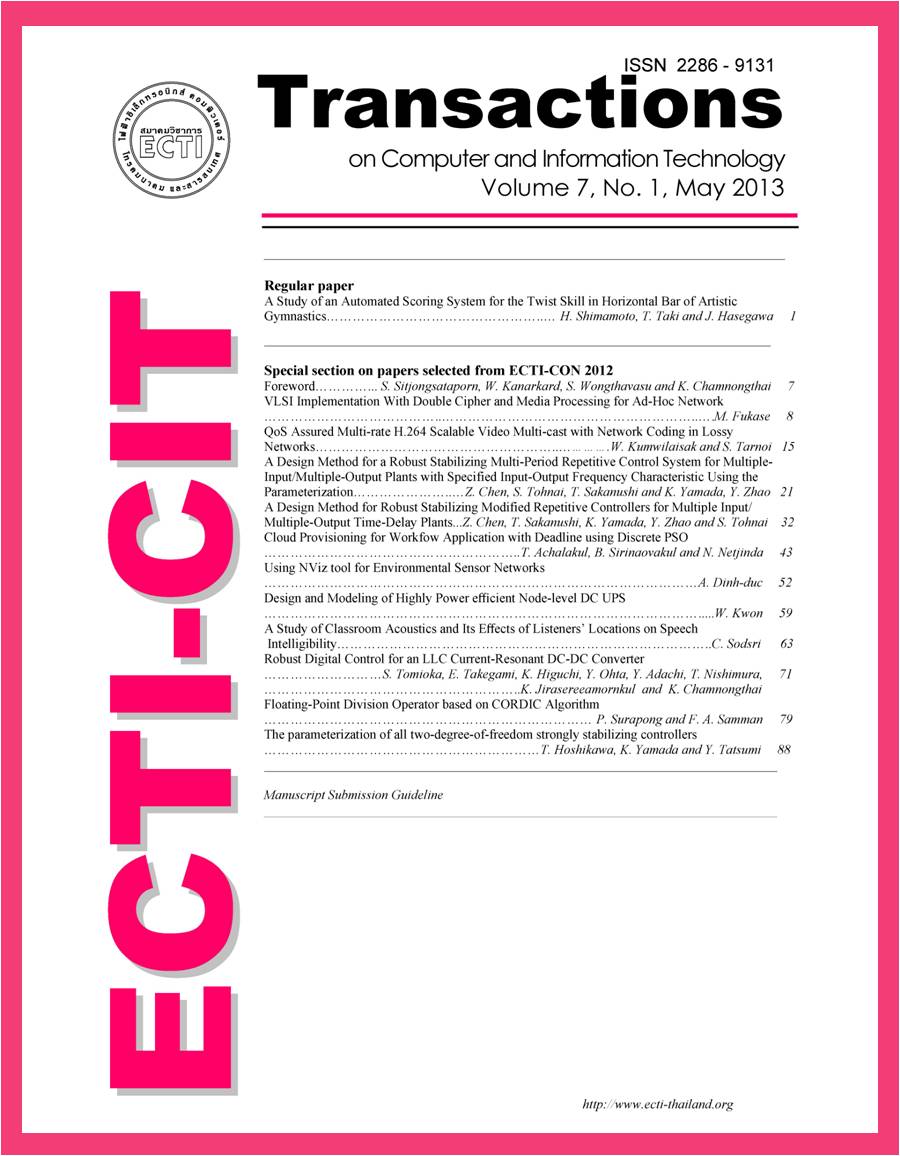VLSI Implementation With Double Cipher and Media Processing for Ad-Hoc Network
Main Article Content
Abstract
Ubiquitous network is really one of remarkable trends of next generation information and communication technologies. However, the rapid increase of ubiquitous technologies has given rise to serious concerns about security issues which are getting worse, especially in the case of ad-hoc network because it is resource constrained. Both transience and secureness are characteristic features of ad-hoc network. In order to provide a sophisticated processor accompanied with such characteristics, we have so far developed HCgorilla. This is a ubiquitous processor that unifies basic aspects of PC processors, mobile processors, Java CPUs, cryptography processors, etc. The unification of these processors has shown effectiveness to achieve not only power and chip area saving but also secureness for ubiquitous environment. The secureness provided by HCgorilla is temporal with practically enough cipher strength and without relying on permanent network infrastructure. This is really one of qualitative conditions required for ad-hoc networks. Considering the ever growing ubiquitous network, the target of this study is the total optimum design of HCgorilla chips with particular emphasis on small resource and secure implementation. The improved version, HCgorilla.7 is implemented in a CMOS standard cell chip. Specific features of HCgorilla.7 are described regarding occupied area, power consumption, throughput, and cipher strength. Judging from these results, HCgorilla is one of most profitable candidates for the next generation ubiquitous environment.


